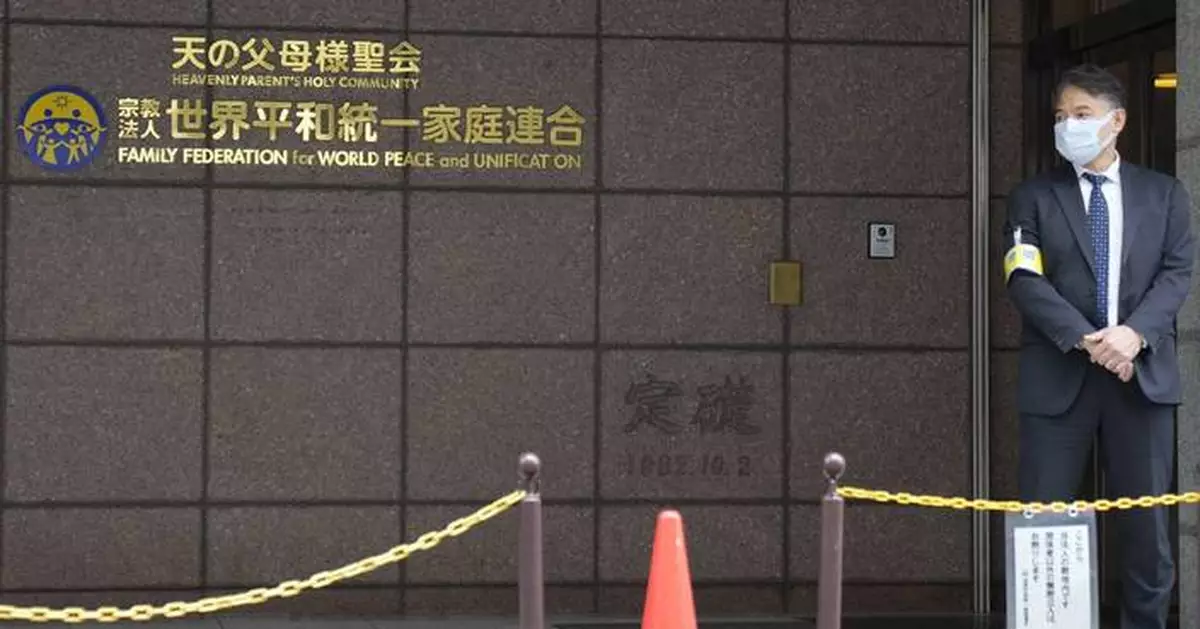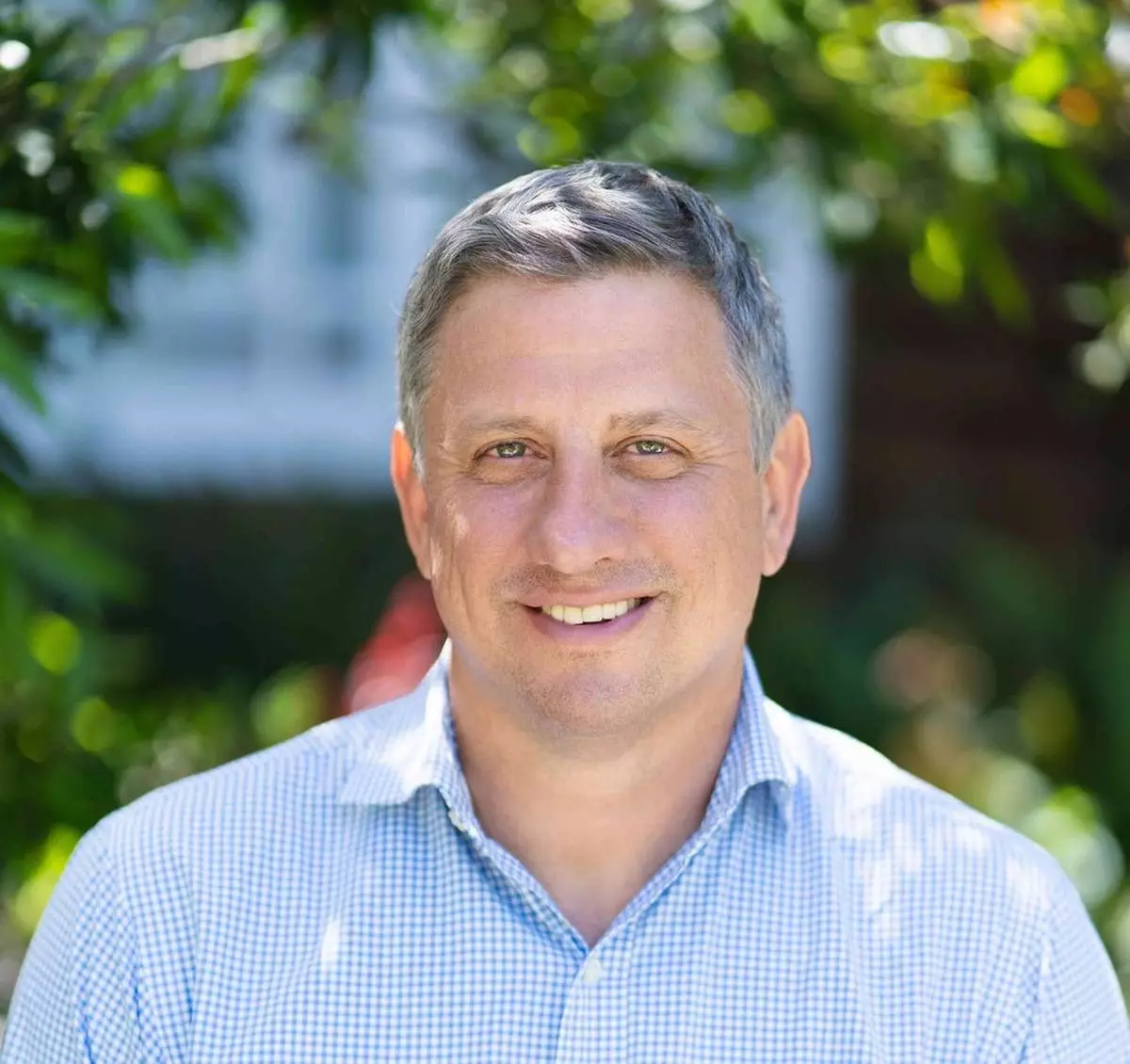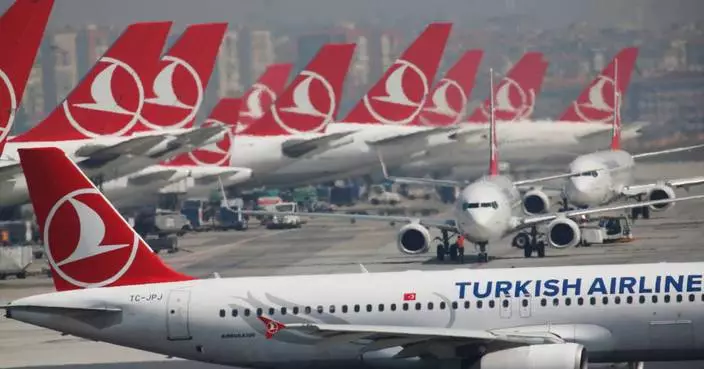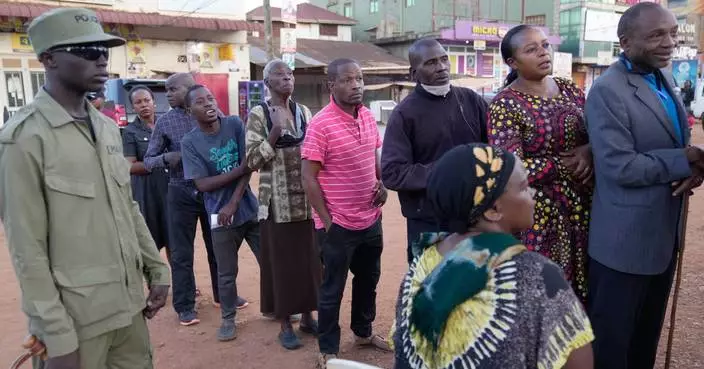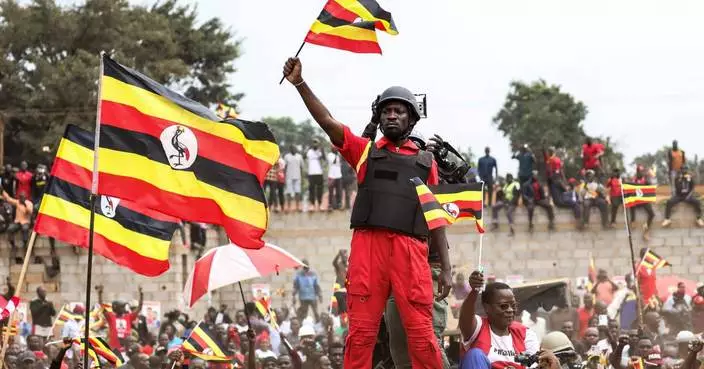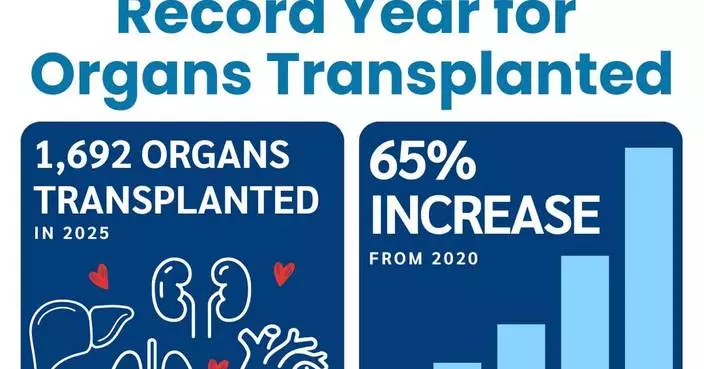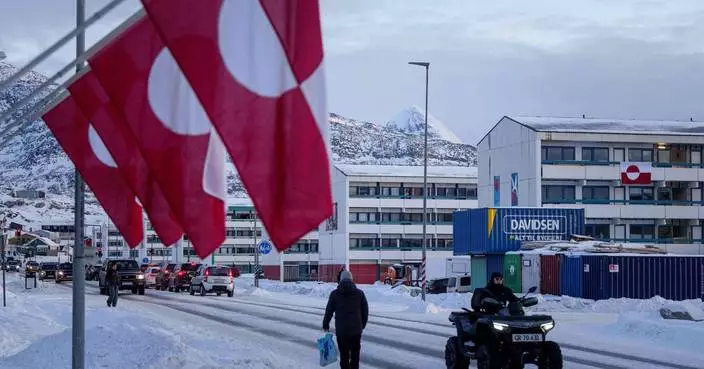TOKYO (AP) — The Unification Church in Japan was ordered dissolved by a court Tuesday after a government request spurred by the investigation into the 2022 assassination of former Prime Minister Shinzo Abe.
The South Korea-based church said it was considering an immediate appeal of the Tokyo District Court’s revocation of its legal status, which would take away its tax-exempt privilege and require liquidation of its assets.
The order followed a request by Japan’s Education Ministry in 2023 to dissolve the influential South Korea-based sect, citing manipulative fundraising and recruitment tactics that sowed fear among followers and harmed their families.
In the ruling, the court said the church’s problems were extensive and continuous, and a dissolution order is necessary because it is not likely it could voluntarily reform, according to NHK television.
“We believe our claims were accepted,” Chief Cabinet Secretary Yoshimasa Hayashi told reporters, adding the government will continue efforts to support victims of the church.
The Japanese branch of the church had criticized the request as a serious threat to religious freedom and the human rights of its followers.
The church called the court order regrettable and unjust and said in a statement the court's decision was based on “a wrong legal interpretation and absolutely unacceptable."
Tomihiro Tanaka, president of the church's Japanese branch, accused the government of “fabricating damages." The church is “not a malicious group that should be dissoloved,” he told a news conference on Tuesday.
The investigation into Abe's assassination revealed links over decades between the church and Japan’s governing Liberal Democratic Party. The church obtained legal status as a religious organization in Japan in the 1960s during an anti-communist movement supported by Abe’s grandfather, former Prime Minister Nobusuke Kishi.
The man accused of killing Abe resented the church and blamed it for his family's financial troubles.
The church, which officially calls itself the Family Federation for World Peace and Unification, is the first religious group subject to a revocation order based on violations of Japan’s civil code. Two earlier case involved criminal charges — the Aum Shinrikyo doomsday cult, which carried out a sarin nerve gas attack on the Tokyo subway system, and Myokakuji group, whose executives were convicted of fraud.
To seek the church's dissolution, the Education Ministry had submitted 5,000 documents and pieces of evidence to the court, based on interviews with more than 170 people.
The church tried to steer its followers’ decision-making, using manipulative tactics, making them buy expensive goods and donate beyond their financial ability and causing fear and harm to them and their families, seriously deviating from the law on religious groups, officials and experts say.
The Agency for Cultural Affairs said the settlements reached in or outside court exceeded 20 billion yen ($132 million) and involved more than 1,500 people.
Lawyers representing those seeking damages from the church welcomed the court decision as a major first step toward redress.
“We must pursue our effort to achieve redress and to prevent future problems,” head lawyer Susumu Murakoshi told reporters, demanding the church accept the dissolution order and offer an apology and compensation to all victims.
The church was founded in Seoul in 1954 by the late Rev. Sun Myung Moon, the self-proclaimed messiah who preached new interpretations of the Bible and conservative, family-oriented value systems.
Nicknamed the “Moonies,” after its founder, the church developed relations with conservative world leaders including U.S. President Donald Trump, as well as his predecessors Richard Nixon, Ronald Reagan and George H.W. Bush.
The church faced accusations in the 1970s and 1980s of using devious recruitment tactics and brainwashing adherents into turning over huge portions of their salaries to Moon. In Japan, the group has faced lawsuits for offering “spiritual merchandise” that allegedly caused members to buy expensive art and jewelry or sell their real estate to raise donations for the church.
The church has acknowledged excessive donations but says the problem has lessened since the group stepped up compliance in 2009.
Experts say Japanese followers are asked to pay for sins committed by their ancestors during Japan’s 1910-1945 colonial rule of the Korean Peninsula, and that the majority of the church’s worldwide funding comes from Japan.
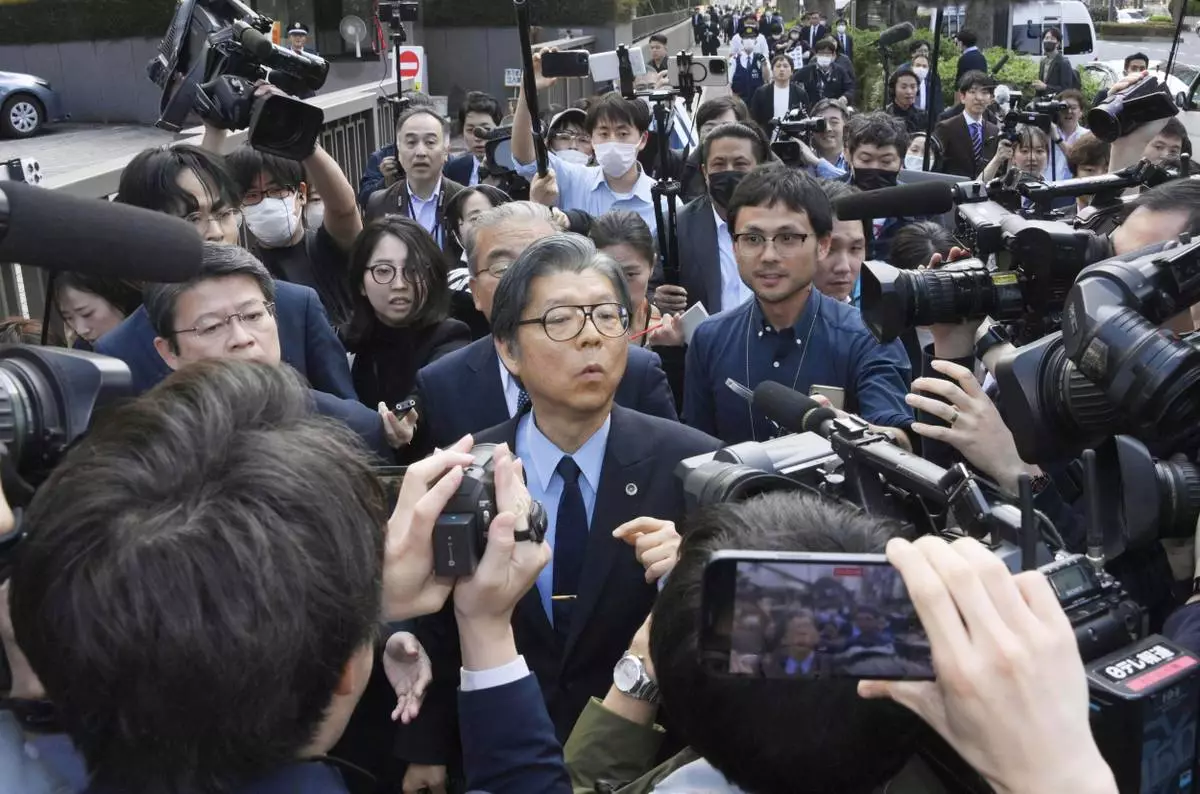
Nobuya Fukumoto, foreground center, a lawyer for the Unification Church, is surrounded by reporters after the church was ordered dissolved by the Tokyo District Court, in front of the court in Tokyo Tuesday, March 25, 2025. (Kyodo News via AP)
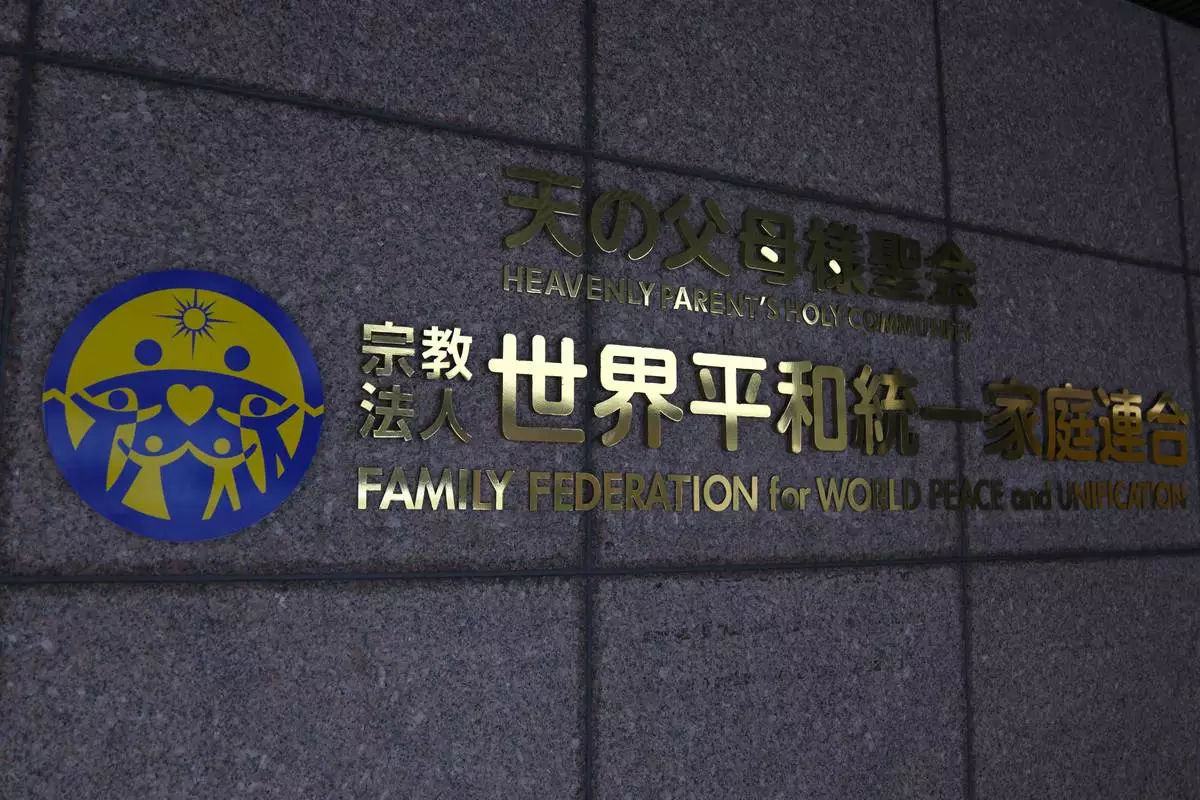
The logo of the Family Federation for World Peace and Unification, is seen at its building's entrance on Nov. 7, 2023, in Tokyo. (AP Photo/Shuji Kajiyama)
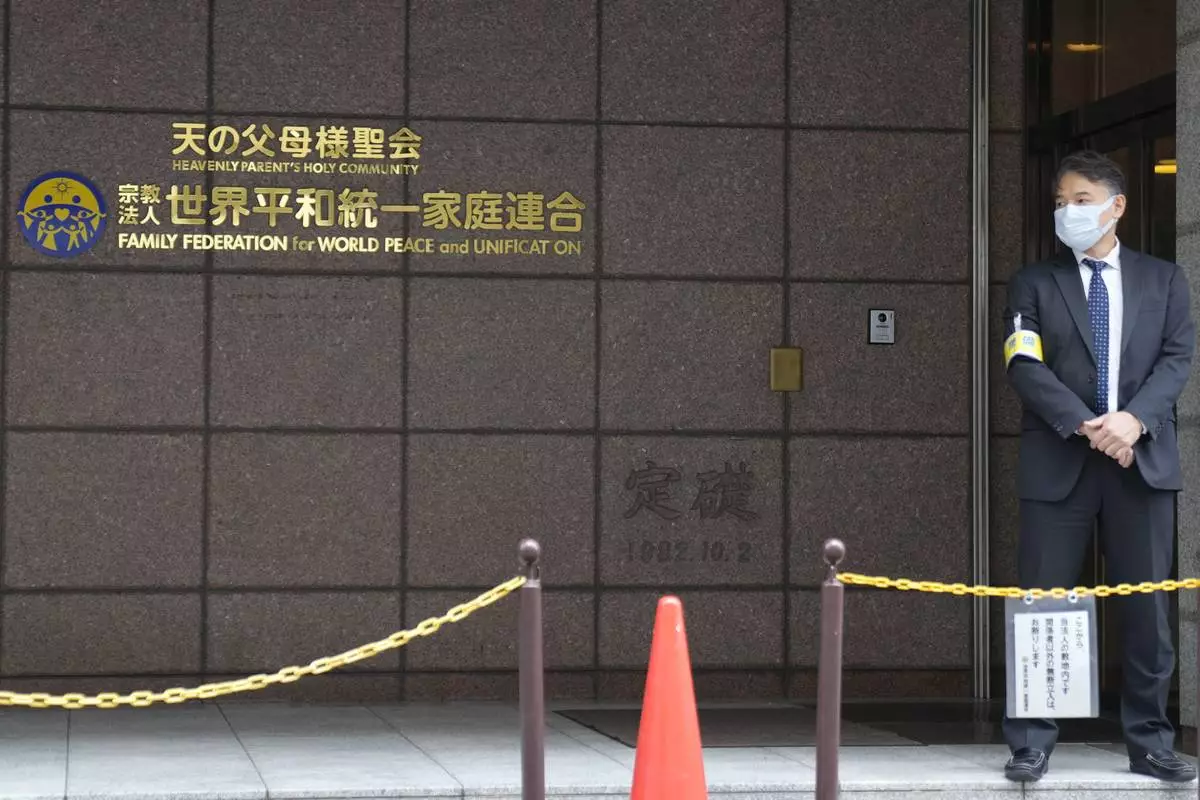
The entrance of the Family Federation for World Peace and Unification, is seen on Nov. 7, 2023, in Tokyo. (AP Photo/Shuji Kajiyama, File)


